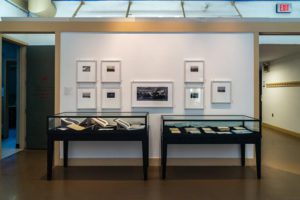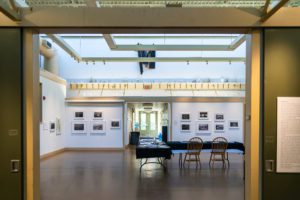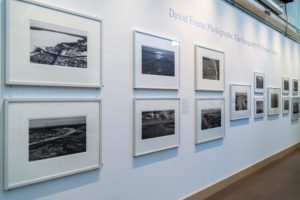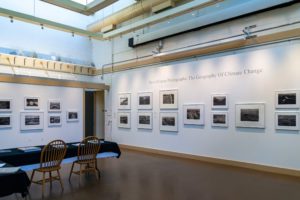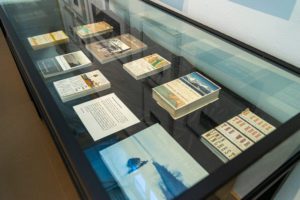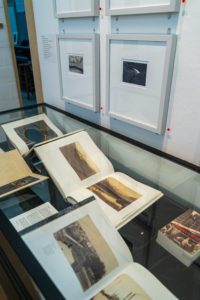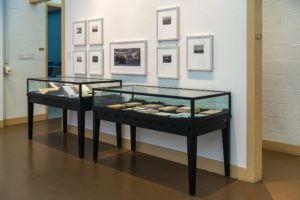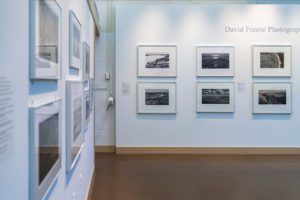David Freese has been photographing the impacts of climate change over his 40-year career, and has gained an understanding of the severity of the issue. This semester, he shares his findings in an exhibition, The Geography of Climate Change, that presents 39 of his black-and-white landscape photographs taken across North America. “Climate change and global warming are here in force now,” he warns.
His exhibition, which is on display in the Atrium Gallery of the Jane Lutnick Fine Arts Center, is divided into three sections, which correspond to his three books: West Coast: Bering to Baja, East Coast: Arctic to Tropic, and Mississippi River: Headwaters and Heartland to Delta and Gulf, which together detail the changing landscape of the Northern Hemisphere. He focuses specifically on how climate change has impacted water features, such as glaciers, harbors, and rivers. Several of his photos capture energy facilities, such as power plants and coal facilities, providing a commentary on the worsening contributors to climate change.
On display in the gallery, alongside the scores of photos, are Freese’s three books, which give a larger context to his full photography collection. Freese notes that the exhibit space is “a setting that allows the art students and faculty to see the work, ask questions, and make comments.”
He developed a love for landscape photography early on in his career. He studied the techniques of other landscape photographers such as William Henry Jackson and Timothy O’Sullivan, and particularly experimented with the impact of light on landscapes. “My passion for landscape photography and the ability to have my work published in book form placed me in a position where I could hopefully provide some facts and truth in the face of the nonsensical propaganda and what has become an increasingly tragic delay to act,” he said.
Freese attributes this exhibition to Willie Williams, the Audrey A. and John L. Duseeau Professor in the Humanities and Professor of Fine Arts. Together, the two of them selected the photos from Freese’s three books that would be featured in the exhibition. “Of course, an artist needs people who support one’s vision and who can provide the appropriate outlets and exposure,” said Freese. “I can’t thank Professor Willie Williams enough for his support and encouragement.”
Freese hopes that this exhibition will motivate further climate action. “All prior worst-case scenarios have been exceeded and it is only going to continue down that twisting, roller coaster road,” he said. “Exactly how dire and dangerous the ride becomes is the only thing left for humankind to act upon. We all have a part in determining how this play ends.”
The exhibition will be open Monday–Wednesday, from 9 a.m. to 3:30 p.m. and by appointment through Oct. 7.

